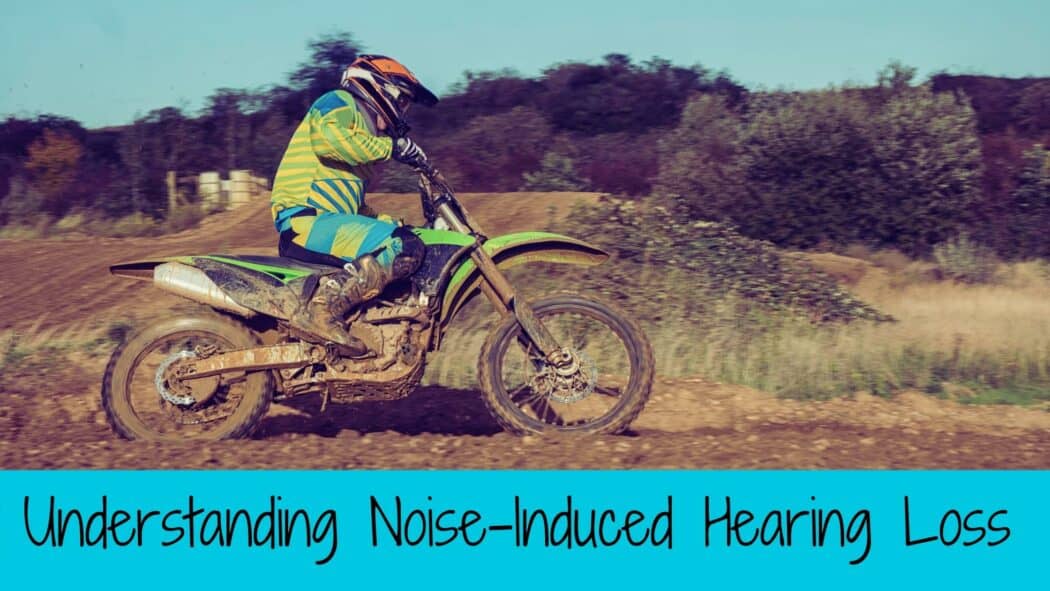If you have ever attended a loud concert or sporting event and left with ringing in your ears, this may mean that you have suffered noise induced hearing loss. It’s important to note that it takes years to develop a serious case of hearing loss this way and while one exposure can cause damage, it is actually repetitive instances of exposure that cause serious damage.
Understanding Noise Induced Hearing Loss
Noise induced hearing loss is the second most common type of hearing loss after age related hearing loss. The CDC reports that approximately 40 million US adults aged 20-69 suffer from the condition. While noise induced hearing loss may eventually contribute to age related hearing loss after many decades of sound exposure, Noise induced hearing loss can affect people of all ages. Most importantly, noise induced hearing loss can often be avoided altogether when you know what to look out for and take the proper precautions.
Our amazing ears
To understand how sound can damage our hearing first we must understand how our hearing system works. Our ears pick up sound which then travels down the ear canal causing vibrations in tiny bones in the inner ear. As these bones vibrate, they stimulate the cochlea which is filled with fluid. As the fluid slowly moves it stimulates tiny hair like cells called stereocilia. The stereocilia sends the vibrations to our brains, where the sound is processed and interpreted into recognizable sounds and conversation. This is where hearing loss caused by noise most often occurs. Sound can damage the stereocilia once it reaches a certain threshold, which inhibits the delivery of sound information to our brain.
How loud is too loud?
Sound is measured in decibels (dB) and any sound that reaches 85 dB or higher can start to damage the stereocilia. A constant decibel level of 85 dB can cause significant damage when exposed for eight hours a day or more several days a week over many years. This is why noise induced hearing loss is very common in workplace situations where people spend extended time exposed to a similar noise level. However, as the decibel level rises, the amount of time it takes for the same damage to occur becomes shorter. The amount of time it takes for hearing loss to happen cuts in half for every three dB increase in volume. For instance, a decibel level of 91 dB sound can cause damage to the ears in 4 hours of constant exposure while a decibel level of 97 dB can cause the same damage in only 2 hours.
Understanding the Risk
The issue often is that you may not even realize that your hearing is being damaged for many years. Knowing the decibel levels in the places you frequent can help you detect a treat to your ears before it can develop. To put things in perspective a conversation usually levels out at 60 dB. A household appliance such as a washing machine averages as 70 dB but traffic can reach 90 dB. This means that for people who are commuting they could be putting their hearing at risk and not even know it. It is important to measure the decibel level in the places you frequent. This can usually be achieved using a free app on most Smartphones.
Minimize the risk
The louder the sound, the faster the damage. A concert or sporting event has the potential to reach 120 decibels easily, leaving you not only with ringing ears but a little less hearing ability than you had before. When the sound rises the stereocilia actually can become damaged or permanently destroyed. It is important to plan ahead when you can to avoid serious hearing loss, later in life. The number one thing you can do is invest in hearing protection. Earplugs and protective earmuffs can reduce the decibel level from 15-33 decibels, which can prevent quite a lot of damage. Know the decibel levels in the places you frequent and wear your hearing protection proudly.
Treating hearing loss
Hearing loss caused by noise is permanent, but it can be effectively treated with hearing aids. These amazing devices amplify the sounds you may have lost due to noise exposure, so they are audible again. Hearing aids can help you follow conversations with more ease and be more alert in your environment. The first step is to schedule a hearing consultation. If you suspect that you have noise induced hearing loss, schedule a hearing test today and enjoy the sounds you love again!

